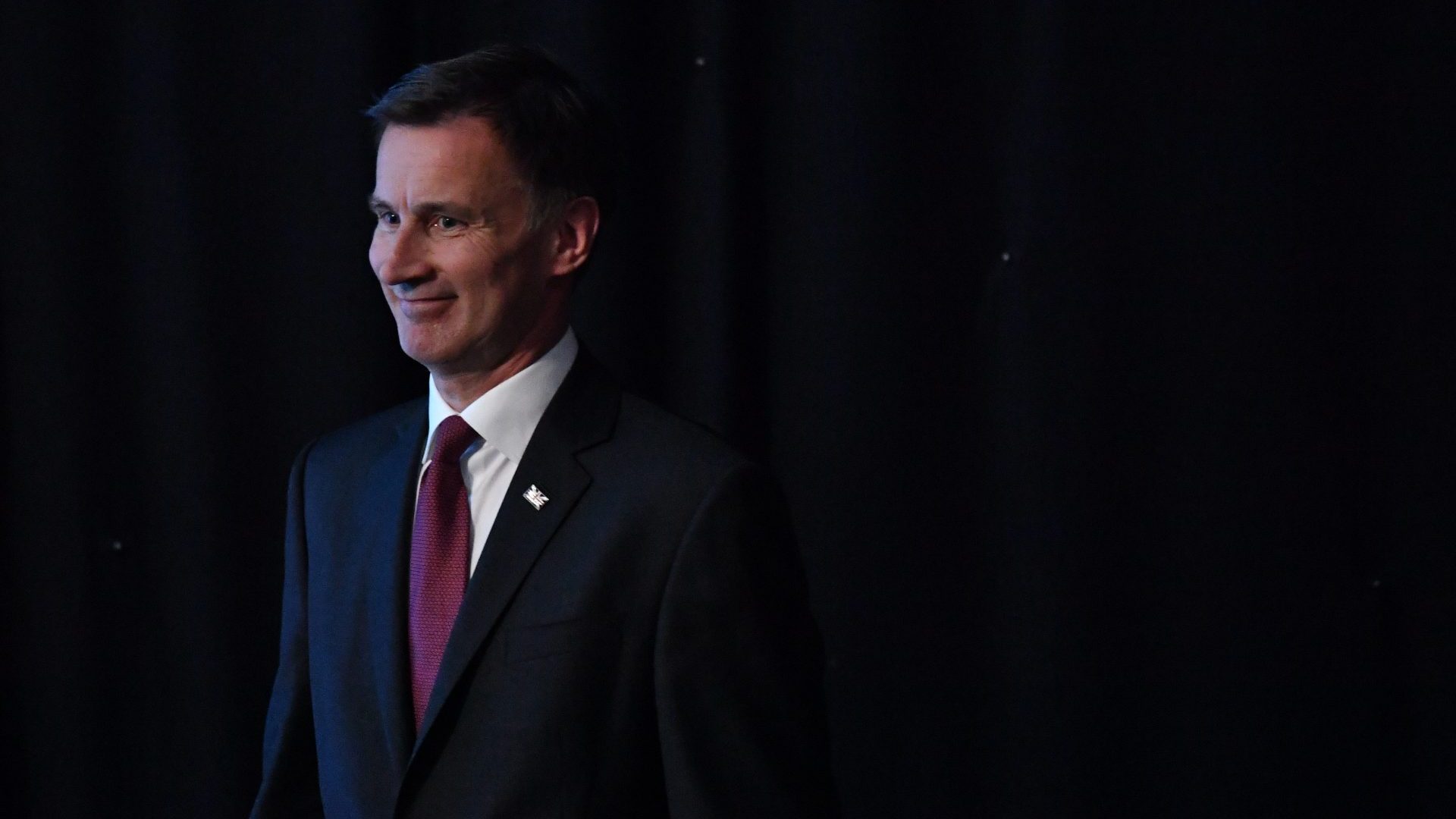Kwasi Kwarteng left office with a whimper, not a bang. Less than 24 hours after declaring in Washington that he was “going nowhere”, he returned to London to learn Liz Truss was summarily sacking him as chancellor of the Exchequer, to be replaced by Jeremy Hunt.
Kwarteng is reported to have learnt of the prime minister’s decision on Twitter, an extraordinary humiliation for someone so close to Truss. A free-wheeling politician with a libertarian bent and an outsized appetite for risk, Kwarteng was in every sense her ideological bedfellow.
The proximate cause for the chancellor’s removal was last month’s mini-budget which pledged $40bn in unfounded permanent tax cuts, triggering mayhem in financial markets. But Truss’s fingerprints were all over this high-risk gamble.
Her decision to sack the chancellor marks not just another government U-turn. Nor is it simply a belated effort to calm financial markets. It is a last-ditch bid to save her own political skin as the mutiny against her premiership spreads inside the ruling Tory party.
Truss’s appointment of Jeremy Hunt as her new chancellor highlights how flawed her original approach to government has been from the outset.
After she beat Rishi Sunak in the summer leadership election, Truss insisted on appointing a Cabinet based on fealty rather than competence. She refused to reach out to any of her defeated opponents. And she arrogantly asserted her own personal mandate based on the votes of Tory party members rather than Tory MPs, a clear majority of whom preferred other candidates.
To pretend that the mini-budget or “fiscal event” was Kwarteng’s work alone is to rewrite history. Truss insisted that the centrepiece – a multi-billion pound support package to help households through the energy shock – was freighted with a massive Ronald Reagan-style tax-cutting package.
By reversing Sunak’s planned rise in corporation tax, cutting the basic rate of income tax, and reversing the increase in national insurance, Truss declared that she was going for “growth, growth, growth”. This in turn was supposed to serve as the Tory platform for the next election.
Despite Sunak’s warning about “fairy-tale economics”, neither Truss nor Kwarteng anticipated that financial markets would give their brand of trickle-down policies a resounding raspberry.
This lack of intelligence has baffled some observers. The Lib Dems and Labour have raised questions about Kwarteng’s post-Budget champagne reception with hedge fund managers, including Crispin Odey, who once employed him and whose firm has made handsome profits shorting the pound.
Truss also spoke with top Wall Street executives during last month’s trip to the US where she attended the annual UN General Assembly. At least two I have spoken to reported they were deeply unimpressed with her presentation.
Hunt, a former health and foreign secretary, is viewed as a far safer pair of hands than his high-rolling Etonian predecessor. Yet the debt markets have delivered a dubious reaction to Truss’s manoeuvres on Friday – not just sacking Kwarteng, but a panicky press briefing to announce that the increase in corporation tax, announced by Rishi Sunak two chancellors ago, would go ahead as planned.
Much will nevertheless ride on the Bank of England’s monetary policy and whether governor Andrew Bailey will calibrate its bond-selling programme. At the moment, the BofE is set on reversing the longstanding policy of quantitative easing to head off a deep recession post the financial crisis and the Covid pandemic.
And then there remains the Office for Budget Responsibility’s economic forecast which will address the vexed question of government revenues and spending. In the end, Truss and Hunt will have to make the sums add up. At the moment, they don’t.










